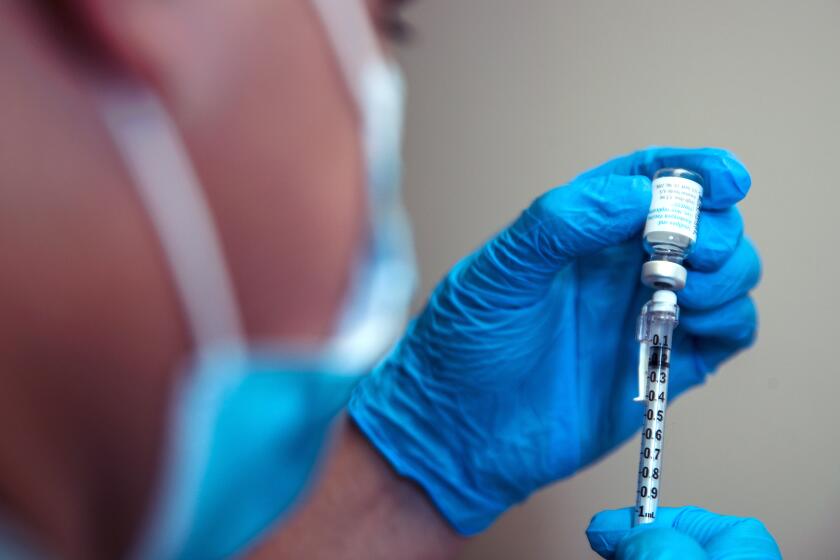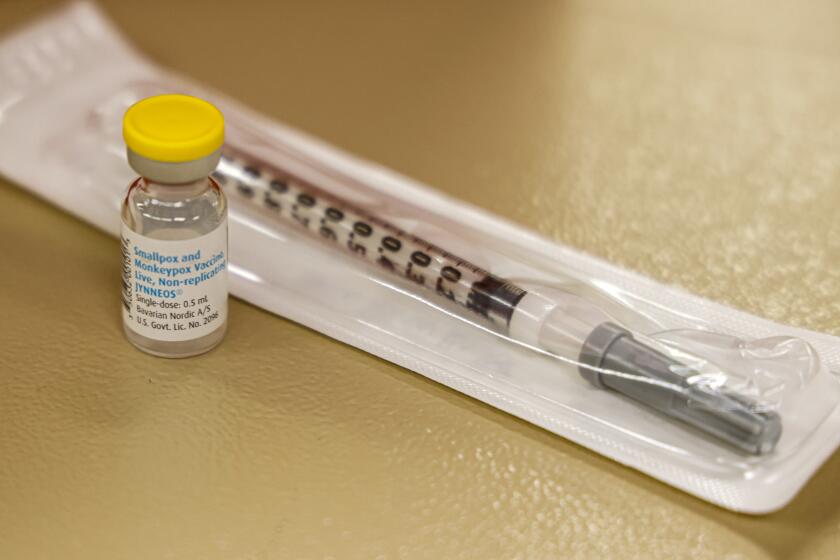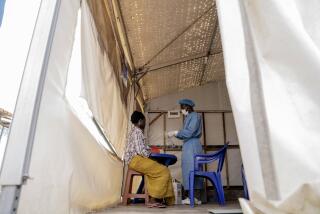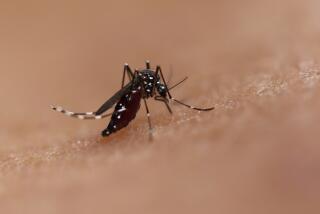L.A. County reports nation’s first confirmed MPX death
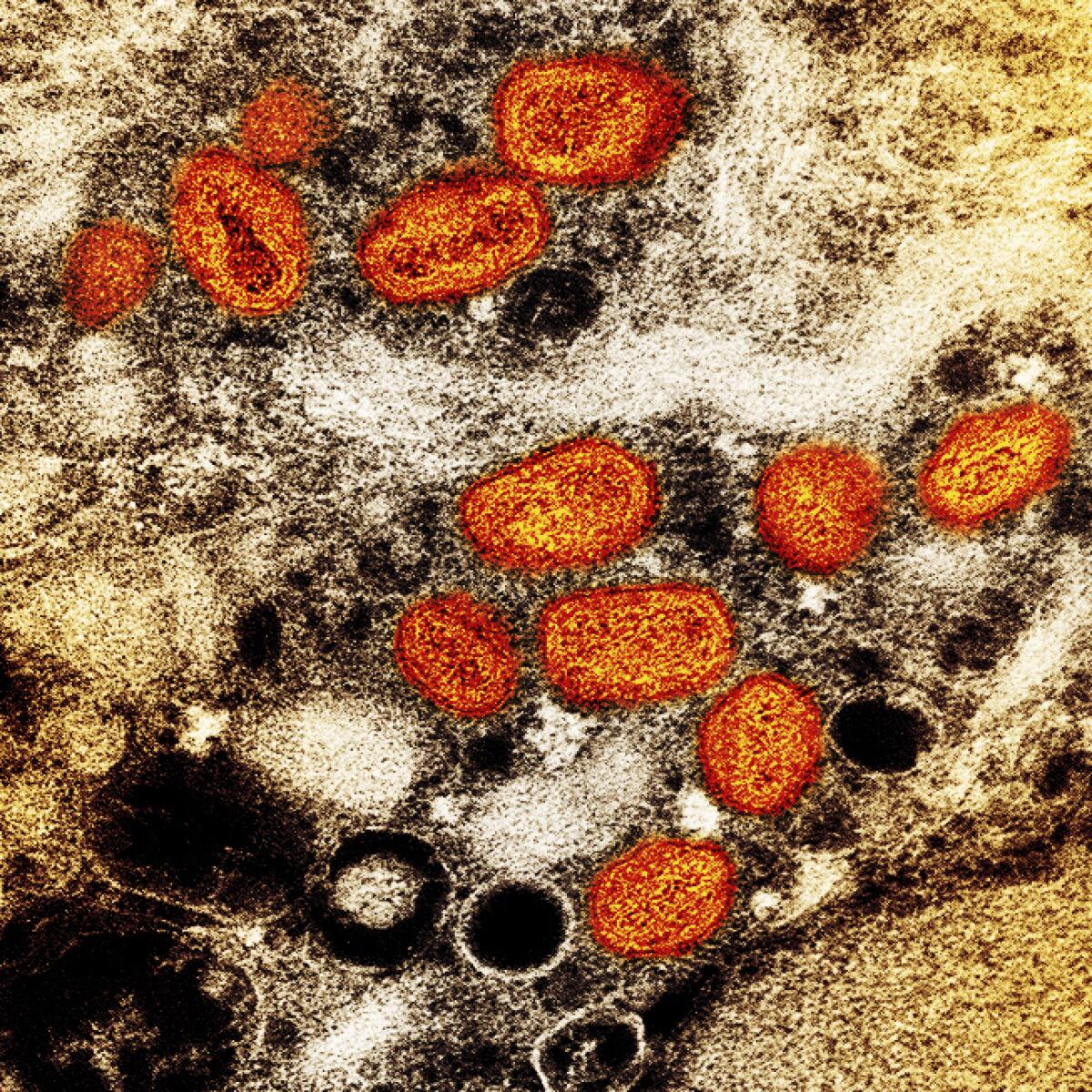
A Los Angeles County resident has died from MPX — the nation’s first confirmed fatality linked to the disease, public health officials said Monday.
Officials first publicly reported the death Thursday but said the precise cause was still being probed at that point. Further investigation from the county Department of Public Health and U.S. Centers for Disease Control and Prevention determined the death was from MPX, also known as monkeypox, according to a statement.
Another death — of an adult who was severely immunocompromised and had been diagnosed with MPX — was reported in Texas in late August. However, officials there have yet to definitively state whether that fatality was caused by the disease.
An autopsy must still be conducted, health officials said.
The L.A. County Department of Public Health noted that the local resident “was severely immunocompromised and had been hospitalized,” but otherwise did not disclose any other details — such as the person’s age, gender or city of residence — citing privacy concerns.
“Persons severely immunocompromised who suspect they have monkeypox are encouraged to seek medical care and treatment early and remain under the care of a provider during their illness,” the department wrote in a statement.
Health officials in California recently started to use the name MPX — pronounced mpox — instead of monkeypox because of widespread concerns the older name is stigmatizing and racist. The World Health Organization is in the process of formally renaming the disease, which will take several months.
As of Friday, L.A. County health officials had reported 1,836 MPX cases. However, hospitalizations associated with the disease remain rare.
The rate of newly reported MPX cases also continues to slow. For the seven-day period that ended Thursday, L.A. County reported 187 new cases, a 30% decline from the prior week’s tally of 269.
The MPX virus has wreaked financial havoc for workers who have little paid time off to recover from illness because of strict isolation rules.
Officials credited the slowdown in part to vaccination efforts and nationwide survey data suggesting gay and bisexual men have decreased their number of sexual partners and one-time sexual encounters in light of the outbreak.
Because MPX is not easily transmitted — it typically requires close skin-to-skin contact for an infection to occur, and is nowhere near as transmissible as the coronavirus — officials say spread of disease is likely to fade relatively quickly compared with more contagious illnesses.
MPX disease is characterized by virus-filled rashes and lesions that can look like pimples, bumps or blisters. It can appear first in the genital area and rectum before spreading to other parts of the body, and because the rashes can be mistaken for other skin issues, the virus can easily spread during intimate encounters. Risk is higher for people with multiple sexual partners.
“We likely will continue to see cases for a long time to come. But at least the current high number that we’re seeing, we are hoping to see that that will go down,” Dr. Rita Singhal, chief medical officer for the L.A. County Department of Public Health, said during a briefing Thursday.
U.S. officials are considering broadening recommendations on who should be vaccinated against MPX.
In an advisory issued last week, county health officials noted severe MPX disease has been found in people with inadequately treated HIV, underscoring how essential it is that those at higher risk seek treatment.
“People with advanced or uncontrolled HIV are at risk of life-threatening disease. In previous outbreaks, the majority of monkeypox deaths have been reported in this population,” health officials said in an advisory issued Friday.
L.A. County health officials are now specifically exhorting healthcare providers to use a drug called tecovirimat — commonly known as Tpoxx — in patients who have or are at risk of developing severe MPX disease.
A previous county advisory issued a month ago said only that “patients with lesions or pain that interfere with the activities of daily living and patients at high risk for severe disease” should be considered for treatment with Tpoxx.
There is no shortage of Tpoxx, but the drug has been difficult to get to patients, in part because it is not formally approved by the U.S. Food and Drug Administration to treat MPX.
Advocates say the early years of the HIV/AIDS epidemic is a reminder of how men of color may face racism and stigma when it comes to MPX.
If patients are unable to take the drug orally, Tpoxx should be administered intravenously. Other treatment options include Cidofovir, an antiviral medicine administered intravenously, and Vaccinia Immune Globulin.
U.S. officials also are reportedly considering broadening recommendations on who should get vaccinated against MPX to possibly include men with HIV or those recently diagnosed with other sexually transmitted diseases, the Associated Press reported.
Health officials said clinicians are required to report all MPX cases to the L.A. County Department of Public Health. If patients who are hospitalized have worsening symptoms, such as requiring intensive care, hospitals are asked to contact county health officials for consultation and to get access to more therapeutic options.
More to Read
Sign up for Essential California
The most important California stories and recommendations in your inbox every morning.
You may occasionally receive promotional content from the Los Angeles Times.
